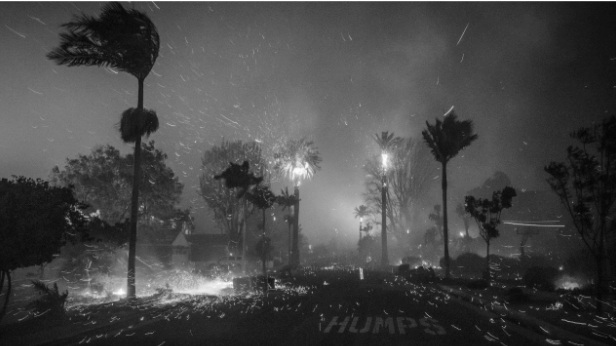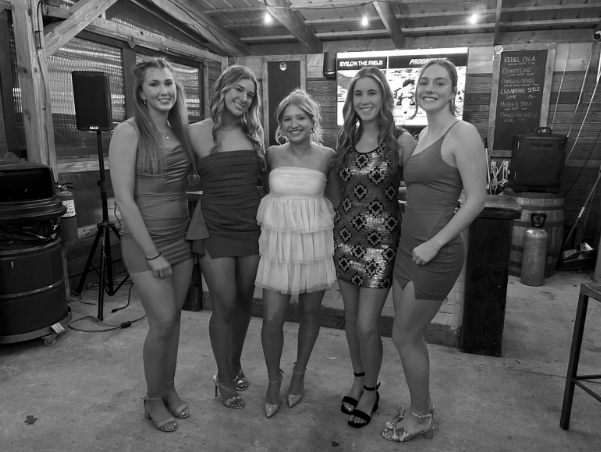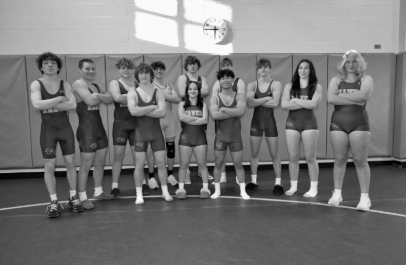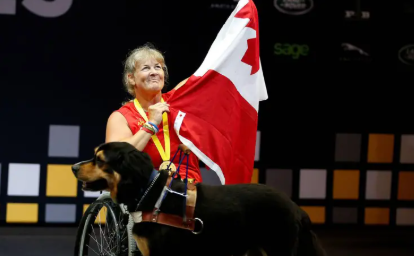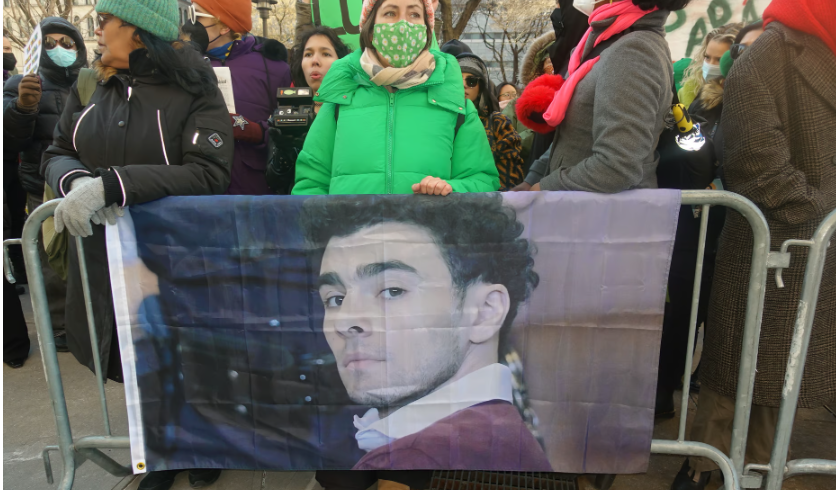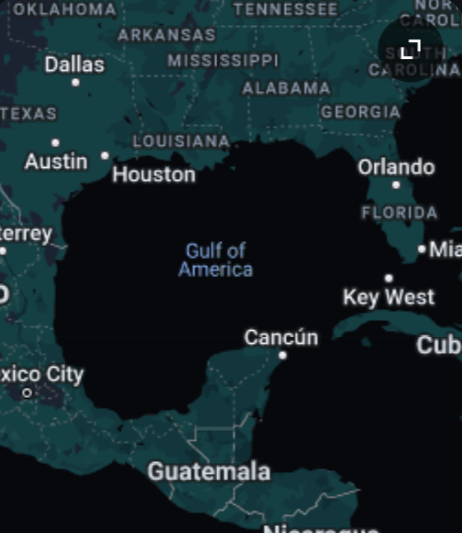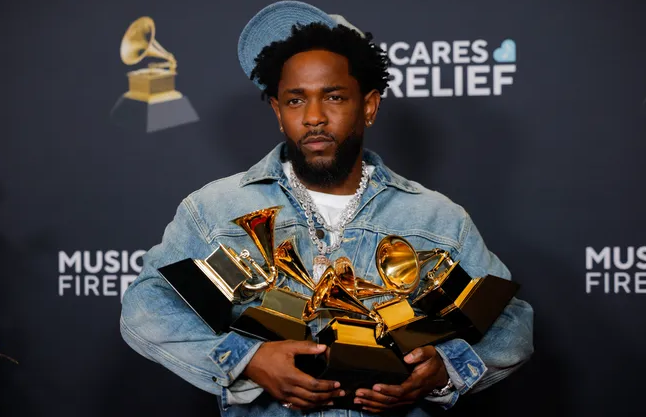Student’s BB gun is seen on virtual class call; Boy’s house is searched for weapons by police
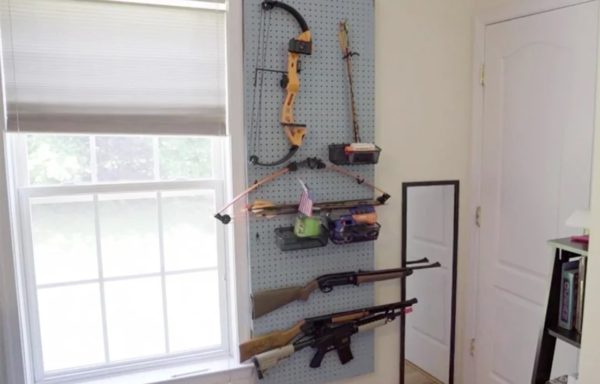
Baltimore County fifth-grader keeps BB guns, airsoft guns, and bows mounted on his wall. He had learned how to shoot them and had taken three levels of archery lessons in pursuit of becoming an Eagle Scout in Boy Scouts. Photo Credit: Chris Papst
September 25, 2020
Since the Coronavirus was declared a pandemic on March 11, life as we know it has been rapidly changing; including our education.
Schools around the country made the decision to transition to virtual learning, and it only makes sense that with a new method of teaching comes a new rule book. But since when are rules being made about what students can possess in their own homes?
A fifth grader at Seneca Elementary School in Baltimore County had gotten the cops called on him for having BB guns safely mounted to his bedroom wall. The 11-year-old had been attending classes virtually since his school shut down due to COVID-19 in March.
According to the student’s mom, Courtney Lancaster, she was home with her son on June 1, when the police knocked on the door and explained that her house was to be searched for weapons. Lancaster told Project Baltimore “I had no idea what to think. I’ve never been in any legal trouble whatsoever.”
She stated that the officer was “very nice” and she gave consent for him to come in. He was at the Lancaster’s home for 20 minutes before determining that no further action had to be taken.
Upon questioning the school administrator through an exchange of emails, this concerned mother began to piece together the events that had transpired. She discovered that her son’s guns were visible on his Google Classroom call, which led a parent to screenshot his bedroom and send it to the school, who in turn contacted law enforcement.
Not only did the administrator bypass any form of professional courtesy by going straight to the police instead of contacting the mother, but she also refused to let Lancaster see the screenshot of inside her own house because it’s not part of her son’s official student record.
The school’s principal had compared having a weapon in virtual class to bringing a weapon into school, and when asked for a statement by Project Baltimore, BCPS replied “the safety of students and staff is our chief concern, whether we are meeting in classrooms or via continuity of learning.” If only they shared that sentiment in regards to their underage student’s privacy.
This incident raised valid concerns for Lancaster. “Who are on these calls? Who do we have viewing your children and subsequently taking screenshots that can be sent anywhere or used for anything,” she wonders. Lancaster feels that “there’s no more trust” and explains that “parents need to be made aware of what the implications are, what the expectations are.”
And she is absolutely right. How can students and their families be held accountable for rules they were never informed about? School is supposed to be a safe place, whether it be virtual or in-person- kids should not need to worry about people taking pictures of their bedrooms, or about getting into legal trouble for what they have in their houses.
This isn’t an isolated issue either; a sixth-grader in Colorado had the cops called on him for picking up a toy gun that read “Zombie Hunter” during a Zoom call. Except he wasn’t just inconvenienced and embarrassed, he was also suspended for 5 days and got a mark on his record for “bringing” a weapon to school.
Everyone’s still adjusting to the new normal, and teachers may be trying to “look out” for the safety of their students, but there has to be a better solution than getting law enforcement involved against literal children. At this point it’s understandable if students don’t want to turn their cameras on at all; better be safe than sorry.
